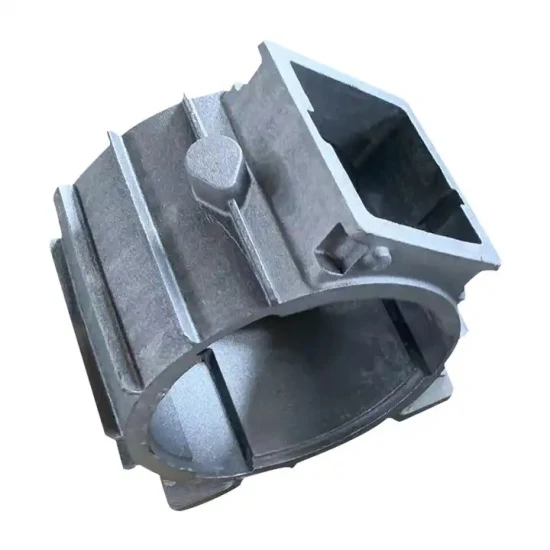Get This Report on Alcast Company
Get This Report on Alcast Company
Blog Article
7 Simple Techniques For Alcast Company
Table of ContentsThe 10-Second Trick For Alcast CompanyAlcast Company Can Be Fun For AnyoneSome Known Incorrect Statements About Alcast Company 8 Simple Techniques For Alcast CompanyGetting The Alcast Company To WorkThe Greatest Guide To Alcast Company
Chemical Contrast of Cast Light weight aluminum Alloys Silicon promotes castability by decreasing the alloy's melting temperature and improving fluidity during spreading. In addition, silicon adds to the alloy's stamina and use resistance, making it important in applications where sturdiness is essential, such as auto components and engine elements.It likewise enhances the machinability of the alloy, making it easier to refine right into ended up items. In this means, iron adds to the general workability of aluminum alloys. Copper increases electric conductivity, making it helpful in electrical applications. It additionally improves rust resistance and adds to the alloy's total stamina.
Manganese adds to the strength of light weight aluminum alloys and improves workability (Foundry). It is commonly utilized in wrought light weight aluminum items like sheets, extrusions, and profiles. The visibility of manganese aids in the alloy's formability and resistance to cracking during manufacture processes. Magnesium is a light-weight aspect that provides stamina and influence resistance to aluminum alloys.
The Main Principles Of Alcast Company
It allows the production of lightweight elements with exceptional mechanical buildings. Zinc enhances the castability of light weight aluminum alloys and assists control the solidification procedure throughout spreading. It enhances the alloy's strength and solidity. It is typically located in applications where detailed forms and great information are required, such as attractive spreadings and specific automotive components.

The primary thermal conductivity, tensile strength, yield stamina, and elongation vary. Among the above alloys, A356 has the highest thermal conductivity, and A380 and ADC12 have the least expensive.
All About Alcast Company

In precision spreading, 6063 is well-suited for applications where complex geometries and premium surface finishes are vital. Examples consist of telecommunication units, where the alloy's superior formability enables for streamlined and aesthetically pleasing styles while keeping architectural stability. In the Illumination Solutions sector, precision-cast 6063 parts create elegant and effective illumination fixtures that require elaborate shapes and great thermal efficiency.
It leads to a better surface area coating and better corrosion resistance in A360. The A360 shows superior prolongation, making it ideal for complex and thin-walled components. In precision casting applications, A360 is fit for sectors such as Customer Electronics, Telecommunication, and Power Tools. Its enhanced fluidness permits complex, high-precision parts like smart device cases and interaction tool real estates.
The 5-Second Trick For Alcast Company
Its unique homes make A360 a beneficial option for precision spreading in useful link these markets, improving item sturdiness and top quality. Light weight aluminum alloy 380, or A380, is a commonly made use of spreading alloy with several unique characteristics. It uses superb castability, making it a perfect choice for precision spreading. A380 exhibits excellent fluidness when molten, ensuring detailed and comprehensive mold and mildews are properly recreated.
In accuracy casting, light weight aluminum 413 radiates in the Customer Electronics and Power Tools sectors. This alloy's remarkable corrosion resistance makes it a superb selection for outdoor applications, making sure lasting, sturdy products in the stated markets.
Alcast Company Fundamentals Explained
Once you have determined that the aluminum die casting procedure is ideal for your project, a crucial following step is choosing the most proper alloy. The light weight aluminum alloy you pick will substantially affect both the spreading procedure and the homes of the last item. Due to this, you should make your decision very carefully and take an enlightened strategy.
Establishing the most ideal aluminum alloy for your application will mean considering a large variety of features. The first group addresses alloy features that impact the manufacturing procedure.
Alcast Company - The Facts
The alloy you select for die spreading directly influences a number of facets of the spreading procedure, like how simple the alloy is to collaborate with and if it is susceptible to casting problems. Warm fracturing, additionally referred to as solidification splitting, is a common die spreading defect for light weight aluminum alloys that can result in internal or surface-level splits or splits.
Specific light weight aluminum alloys are extra susceptible to hot splitting than others, and your option needs to consider this. It can damage both the cast and the die, so you should look for alloys with high anti-soldering residential properties.
Deterioration resistance, which is currently a noteworthy characteristic of aluminum, can vary significantly from alloy to alloy and is an important characteristic to think about depending upon the environmental conditions your product will be revealed to (aluminum metal casting). Use resistance is one more residential or commercial property generally looked for in light weight aluminum items and can separate some alloys
Report this page